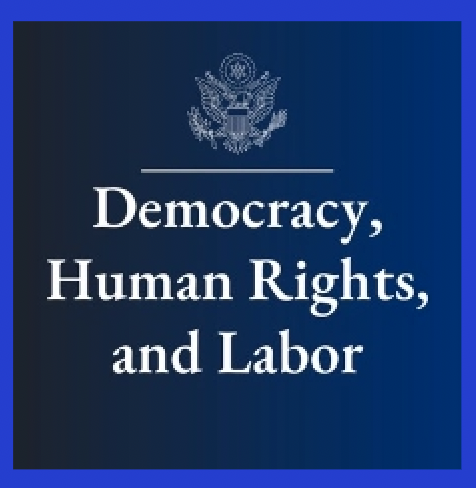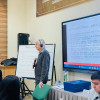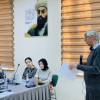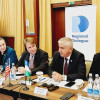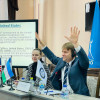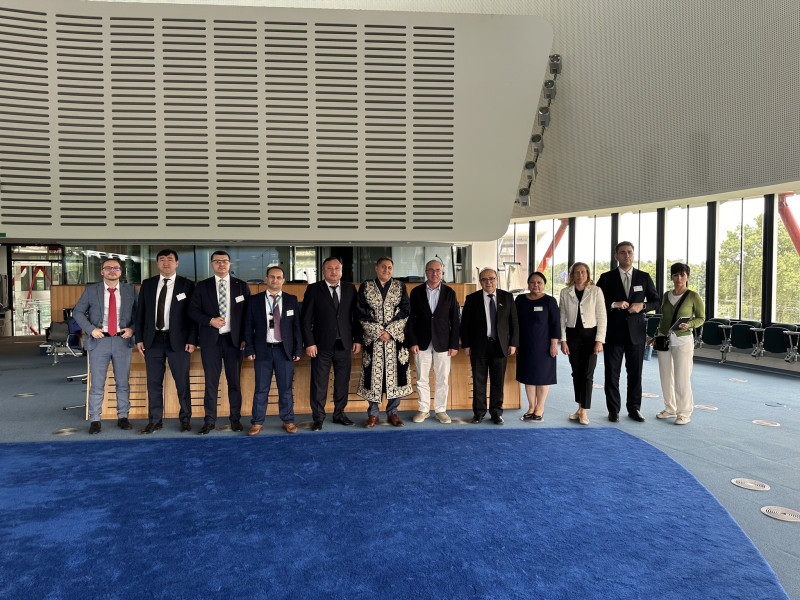
In a bid to enhance the judicial framework of Uzbekistan, Regional Dialogue organized a study tour for Uzbek beneficiaries to expose them to exemplary international and national judicial mechanisms. From 1 – 5 July the Study tour led the group from Uzbekistan to Ljubljana, Slovenia and Strasbourg, France.
The primary focus of the Study tour was the protection of constitutional and conventional basic human rights and the pivotal role of all three branches of government in ensuring these rights. This immersive experience aimed to examine different aspects of international human rights protection mechanisms, assisted in reforming the judiciary as well as the new constitutional revision of the constitutional complaints made by individuals or legal entities due to violation of human rights and freedoms. Overall, we hope this experience allowed the group to explore various facets of international human rights protection mechanisms.
During the first part of the study tour, which took place in Slovenia, the participants visited different Slovenian legal institutions. A visit to Administrative Court showed its important role in exercising the supervision of legality of acts and overall operation of administrative authorities of the State. As Uzbekistan’s governmental stakeholders are considering widening the jurisdiction of the Uzbek Constitutional Court, the study tour took the participants to the Slovenian Constitutional Court, where they met with President of the Slovene Constitutional Court dr. Matej Accetto who answered the question on how to ensure (broad) access to the Constitutional Court on the one hand and on making the docket of the Court manageable. To better understand the appellate levels of judicial protection of human rights, the participants also visited the Supreme Court, where they could get an insight into the relations between the Slovene Supreme Court and the Constitutional Court and discuss topics like the appointment process of judges in Slovenia, judiciary’s budget, access to justice and organization of a court network, generation gap and gender equality in the judiciary with the President of the Supreme Court dr. Miodrag Đorđević.
The Slovenian segment of the study tour offered the delegation a valuable opportunity to visit both the Ministry of Justice and the Ministry of Digital Transformation. At the Ministry of Justice, the delegation, led by State Secretary Andreja Kokalj, focused on the ministry’s guiding and advising role in the implementation of European Court of Human Rights (ECHR) judgments against Slovenia. Meanwhile, at the Ministry of Digital Transformation, the group engaged with the team responsible for the e-government portal, which serves as a digital gateway for a range of services provided by public administration bodies. Lastly, to explore the technical aspects of legal processes, the delegation visited the renowned Jožef Stefan Institute, Slovenia's leading scientific research center. There, they gained insights into AI technology and its potential to enhance the efficiency, transparency, and accuracy of the legislative process.
Concluding a very intensive working week, the Uzbek delegation rounded up their trip with examining the international aspects of human rights protection within two very well established and functioning mechanisms of Council of Europe – the advisory one through the work of Venice Commission and the judicial one through the work of European Court for Human Rights. By that, the Uzbek delegation got to explore the relationship between international and national law both in their complimentary as well as sometimes opposing nature when it comes to questions regarding human rights protection, requiring a robust and working “conflict resolution” mechanism.
The study tour was supported by U.S. State Department’s Bureau of International Narcotics and Law Enforcement Affairs (INL).


